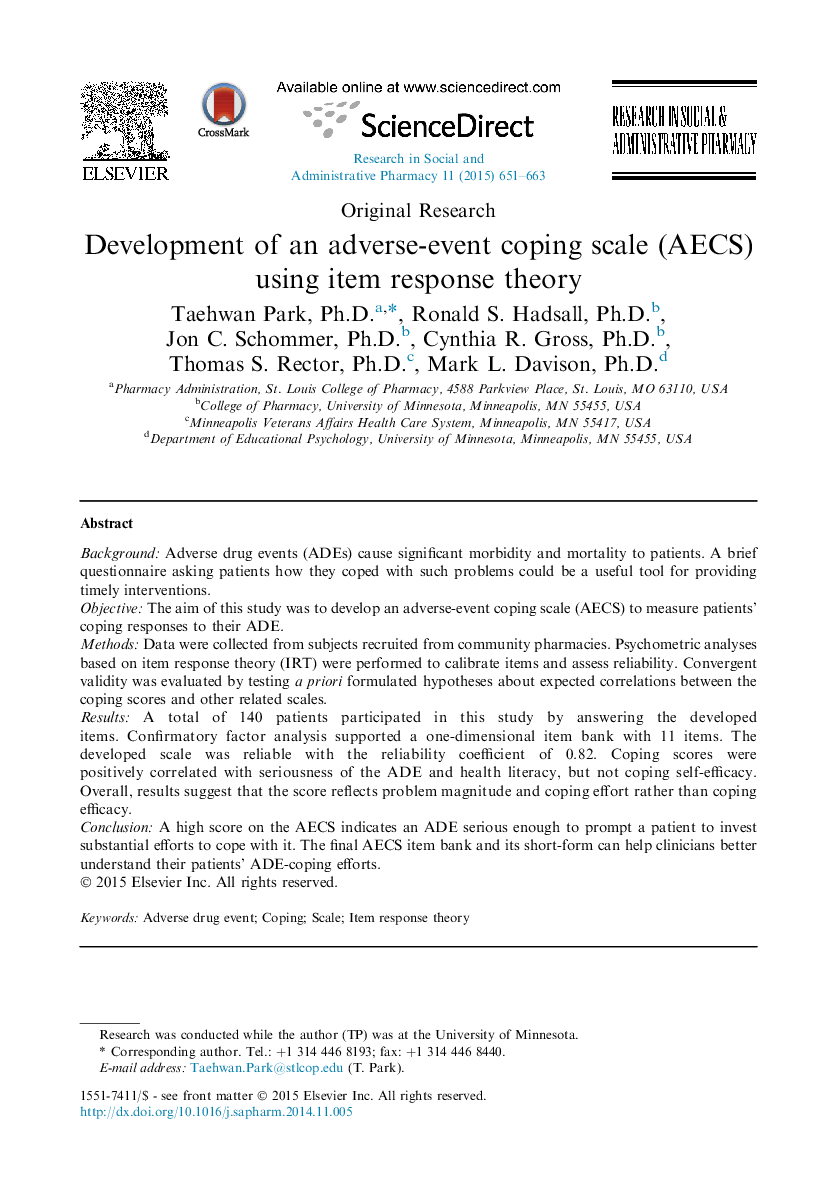| Article ID | Journal | Published Year | Pages | File Type |
|---|---|---|---|---|
| 2508286 | Research in Social and Administrative Pharmacy | 2015 | 13 Pages |
BackgroundAdverse drug events (ADEs) cause significant morbidity and mortality to patients. A brief questionnaire asking patients how they coped with such problems could be a useful tool for providing timely interventions.ObjectiveThe aim of this study was to develop an adverse-event coping scale (AECS) to measure patients' coping responses to their ADE.MethodsData were collected from subjects recruited from community pharmacies. Psychometric analyses based on item response theory (IRT) were performed to calibrate items and assess reliability. Convergent validity was evaluated by testing a priori formulated hypotheses about expected correlations between the coping scores and other related scales.ResultsA total of 140 patients participated in this study by answering the developed items. Confirmatory factor analysis supported a one-dimensional item bank with 11 items. The developed scale was reliable with the reliability coefficient of 0.82. Coping scores were positively correlated with seriousness of the ADE and health literacy, but not coping self-efficacy. Overall, results suggest that the score reflects problem magnitude and coping effort rather than coping efficacy.ConclusionA high score on the AECS indicates an ADE serious enough to prompt a patient to invest substantial efforts to cope with it. The final AECS item bank and its short-form can help clinicians better understand their patients' ADE-coping efforts.
